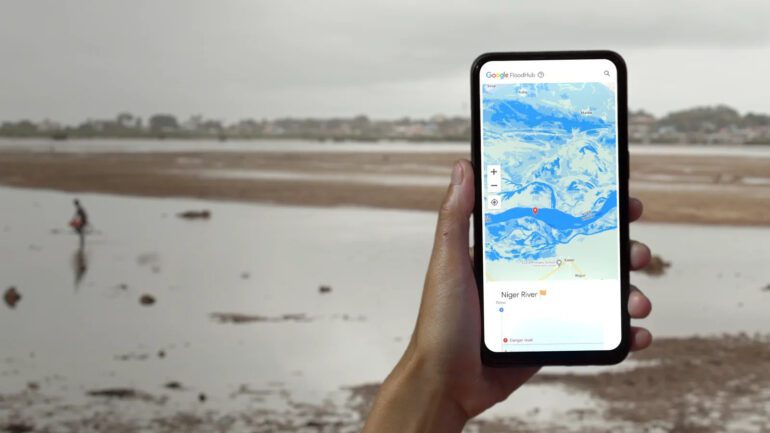In a recent announcement, Google revealed the expansion of its Flood Hub platform, now encompassing 80 countries worldwide, with the addition of eight new African nations. This extension marks a significant step in employing artificial intelligence (AI) to combat the devastating consequences of floods and offer vital assistance to vulnerable communities. By expanding its reach, the Flood Hub platform now provides forecasts up to seven days in advance, benefitting a population of 460 million people globally. The service will now be accessible in countries such as Brazil, Nigeria, Pakistan, and Thailand.
Prior to this expansion, the Flood Hub platform was available in various African countries, including Angola, Burkina Faso, Cameroon, Chad, the Democratic Republic of Congo, Ghana, Guinea, Ivory Coast, Liberia, Malawi, Namibia, Nigeria, Sierra Leone, South Sudan, and South Africa. With the recent enlargement, it encompasses an additional 60 countries, including Burundi, Eswatini, Guinea Bissau, Lesotho, Madagascar, Rwanda, Senegal, and Zimbabwe. This inclusion ensures that a wider range of African communities facing high flood risks and extreme weather conditions can benefit from Flood Hub’s accurate and timely flood forecasting services.
Floods take a substantial toll on lives and economies, causing billions of dollars in damages each year worldwide. Their impact is particularly severe in regions with limited resources that lack effective early warning systems. By equipping governments, aid organizations, and individuals with advanced flood forecasting tools, the Flood Hub platform empowers communities to take proactive measures and make informed decisions to mitigate the devastating effects of floods.
To further enhance flood preparedness, Google is expanding flood alerts through Search and Maps notifications. This initiative ensures that individuals have convenient access to timely and critical flood information. By making these alerts easily accessible, more people will be empowered to take necessary precautions and protect lives and property.
Yossi Mattias, VP Engineering & Research and Crisis Response Lead at Google stated, “We recognize the significant impact that floods have on communities worldwide, especially in regions with limited resources and vulnerable populations. We are committed to expanding the reach of the Flood Hub platform to support these communities and provide accurate flood forecasting that can help save lives and protect livelihoods.”
Since 2019, nonprofit organisations have been collaborating with Google.org to establish offline alerting networks, acknowledging the limited access to cell phones or the internet in certain communities. These networks leverage trained and trusted community volunteers who play a crucial role in amplifying the reach of Flood Hub’s warnings. Consequently, even individuals without digital connectivity can receive life-saving flood alerts, ensuring their safety during times of crisis.


